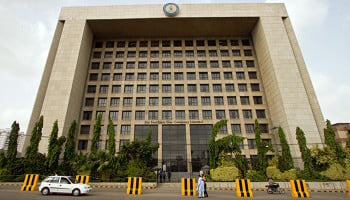
The government of Pakistan has finally decided to introduce reforms to the National Transmission and Dispatch Company (NTDC) in a bid to free the power sector from monopoly and let users choose from multiple electricity suppliers.
As part of the restructuring, the NTDC will be split into three different entities by early 2025 to reduce costs and enhance Pakistan's power grid.
Read more: Govt aims to make Rs8.7tn by auctioning T-bills, bonds
Addressing a presser on Saturday, Federal Minister for Energy Owais Leghari noted that the NTDC restructuring was underway, with early 2025 being the timeframe for its full-fledged implementation.
Power consumers can choose from multiple electricity suppliers
“NTDC has long been plagued by mismanagement, but we are introducing sweeping changes to improve the sector,” he said, adding that the restructuring, already approved by the cabinet, would get rid of oversight and issues like project delays, cost overruns, corruption and nepotism.
According to The News, the three independent entities include the National Grid Company of Pakistan (NGCP), the Energy Infrastructure Development and Management Company (EIDMC), and the Independent System and Market Operator (ISMO).
Of the three, NGCP will aim to make the country’s power transmission services more reliable and efficient, EIDMC will oversee development activities and manage energy infrastructure projects, and ISMO will establish a competitive electricity market, bringing a variety of suppliers to the table of power consumers while including distributors to cut costs.
All of these new entities will reportedly operate under separate boards of directors to exercise accountability and reduce bureaucratic delays. Each is likely to have between 50 and 70 employees, deviating from the former policies that abetted the recruitment of thousands of employees.
















